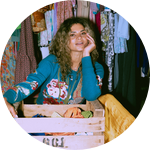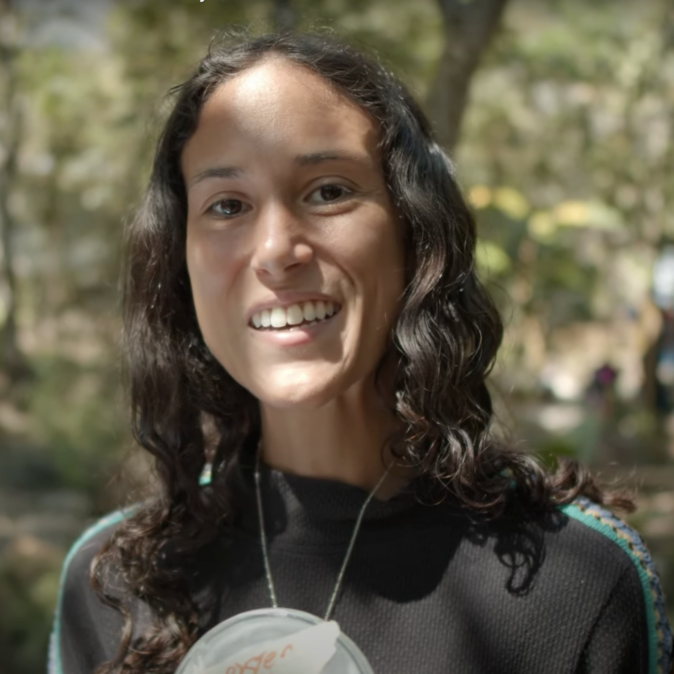About This Project
Farming animals for leather is a water, chemical, and energy-intensive process. Fungal "leather" could help address sustainability problems when farming and using animal leathers, as they can have similar structures to animal skins and perform physically like leathers. The research requires cross-linking fungal mycelium onto a bacterial cellulose matrix to improve fungal-mat flexibility, strength, and leather feel. We aim to refine protocols for these fungal-bacterial biocomposites.
Ask the Scientists
Join The DiscussionWhat is the context of this research?
Current fungal sheet materials are composites of mycelium and lignocellulose. The mechanical properties remain suboptimal, among other reasons, due to the weak internal bonds between the hyphae and the natural fibers. We have been testing the complementary properties of mycelium grown on bacterial cellulose.
Our experiments show mycelium and bacterial cellulose form a multilayer structure grown into pliable and resistant sheets. This composite allows the mycelium sheet more flexibility and gives kombucha a softer surface and added resistance to wear and tear. Mycelium also provides the bacterial cellulose membrane hydrophobicity, stabilizing the state of the dehydrated material in humid conditions.
What is the significance of this project?
Animal leathers are energy, water, land, and chemical-intensive materials ubiquitous to the textile, automotive, furniture, and fashion industries. Leather is one of our most impactful materials regarding climate change, and alternatives are equally unsustainable - the use of PU or PVC vegan leathers is just as detrimental to our planet.
While many companies have inspired us with the potential of mycelium and bacterial cellulose as circular textile alternatives for leathers, not much research has been made on mycelium's and bacterial cellulose's hybridization to reinforce mycelium's micro-structures in mycelial sheets for textile production.
Mycelial alternatives for animal protein products like leather could have the most impact for the textile industry to make sustainable changes.
What are the goals of the project?
Our goal is to collect data on the hybridization of fungal-bacterial composite sheets to improve the physical properties of mycelium-based leather-like materials and refine and document protocols and required finishing processes for its stabilization.
We propose to do this by examining the cross-linking of bacterial cellulose grown in a waste sugar feedstock fermentation and inoculating the produced membrane with mycelium. After the growth process finalizes, further cross-linking with biopolymers like chitosan and plasticizers can be added to improve the durability and flexibility of the final material.
Our aim is also to document and analyze our impacts on a micro-scale on water, energy, biodegradability, biodiversity, bioaccumulation, and waste.
Budget
The myco-skin is in the R&D and prototyping stage. We have invested in the materials, machine use, and personal work hours put into the prototype of the project. Currently, we are working on funding by applying for open calls and collaborations with makers and design studios.
This funding will allow us the necessary tools, equipment, material testing facilities, and collaborators not only to reproduce the method of the bacterial cellulose/mycelium composite but to study and test the properties of the material, impacts on the environment trou degradation, possibilities of its use for fabrication and alternative applications for textile finishes.
Our primary work will focus on material preparation, experiment setup, observation, and data collection.
Our staff fees will cover an honorarium for the collaborators of $500 each; the project will require a minimum of 5-10 hours /week of lab work. Monitoring, documenting, data analysis, and maintenance will not be included.
Endorsed by
 Project Timeline
Project Timeline
Ideally, We could conduct this research over six months, creating a report of material specs, fabrication, and potential uses.
The first few months would involve culturing and growing mycelium strains on bacterial cellulose to determine the best possible properties and outcomes and exploring additives and drying techniques.
We would devote the last months to testing the material properties, enhance the composite membrane and test as additives or finishing agents for textiles.
Jul 29, 2022
Project Launched
Aug 15, 2022
culturing mycelium strains
Aug 15, 2022
growing bacterial cellulose membranes
Sep 14, 2022
inoculate membranes w. various strains
Sep 30, 2022
incubation period
Meet the Team
Team Bio
International collective of artists, designers, and researchers. We aim to engage in radical connections with the non-human through bio-centric practices.
As independent researchers and designers, developing a variety of biomaterial projects has given our team a solid background in allocating resources, time, machines, materials, and any outsourced work required when creating my projects.
Our team creates commissioned works, open call projects, and educational programs.
Catherine Euale
Catherine Euale, a Venezuelan-Canadian artist and citizen scientist, combines various disciplines such as bio art, conceptual art, open-source citizen science, microbiology, and digital fabrication. Her work explores the intricate connections between humans and other species, merging realms like biological arts, mycology, interspecies communication, bioethics, and ART-ivism.
Catherine's focus in on working with microorganisms, organic materials, wearable or sculptural pieces that are grown or partly alive. Her aim is to create a sense of biophilia - the innate desire and love for all living things. She aims heal the concept of the inanimate the objectified and the disposable by bringing context into our objects. Her work portrays their aliveness, through bio-materiality. She works in collaboration with algae, fungi, slime molds, bacteria and plants. She uses digital fabrication, electronics and 3D worldbuilding where applicable to create her pieces and their presentation in a space, crafting a holistic sensory experience.
Euale has showcased at exhibitions such as Dear 2050: Oceans on the Rise in Switzerland, Milan Design week on three ocasions, Dubai Cop28, MIT BioSummit. Her recognition and climate art award from Climanosco highlight her talent in effectively communicating scientific concepts and engaging audiences in critical discussions on biodiversity conservation.
Collaborating often with diverse and multidisciplinary teams, she ensures that the outcomes of her projects encompass thorough research, feasibility, and artistic value, materiality and emotional response. Her work is conscious of people, place, and biodiversity, and strives to give "voices" to the more than human world.
Additional Information
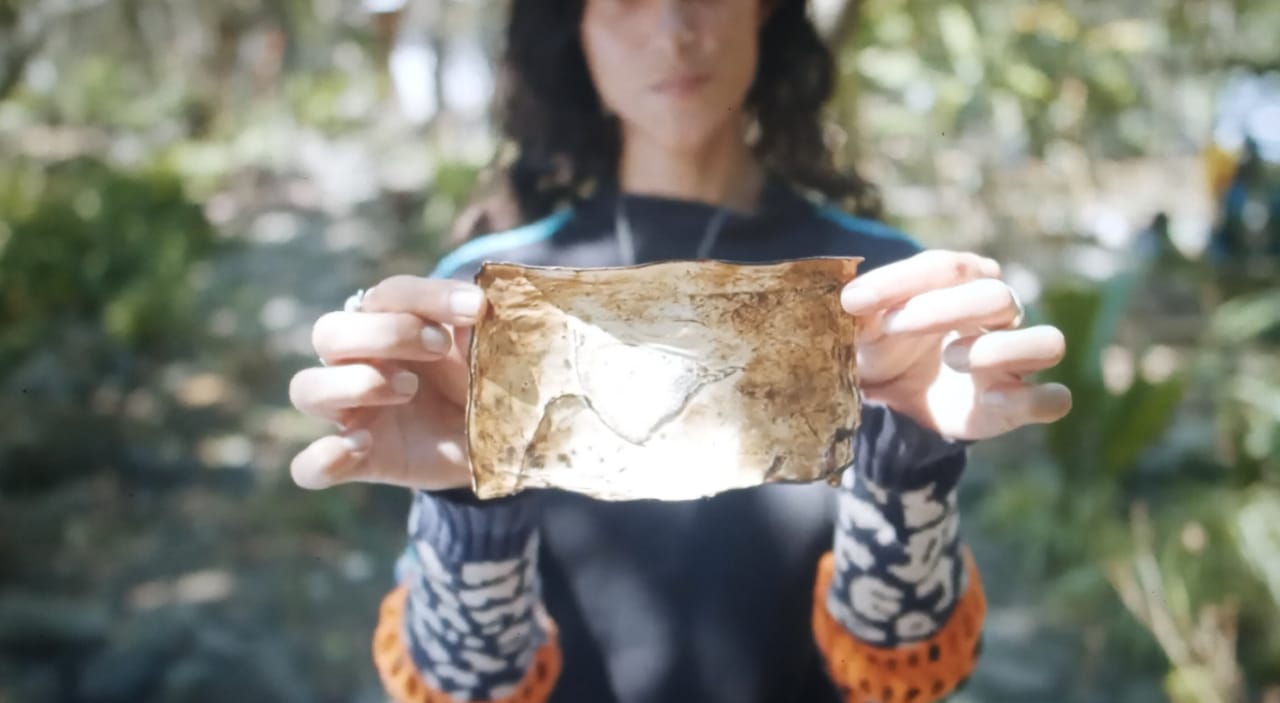
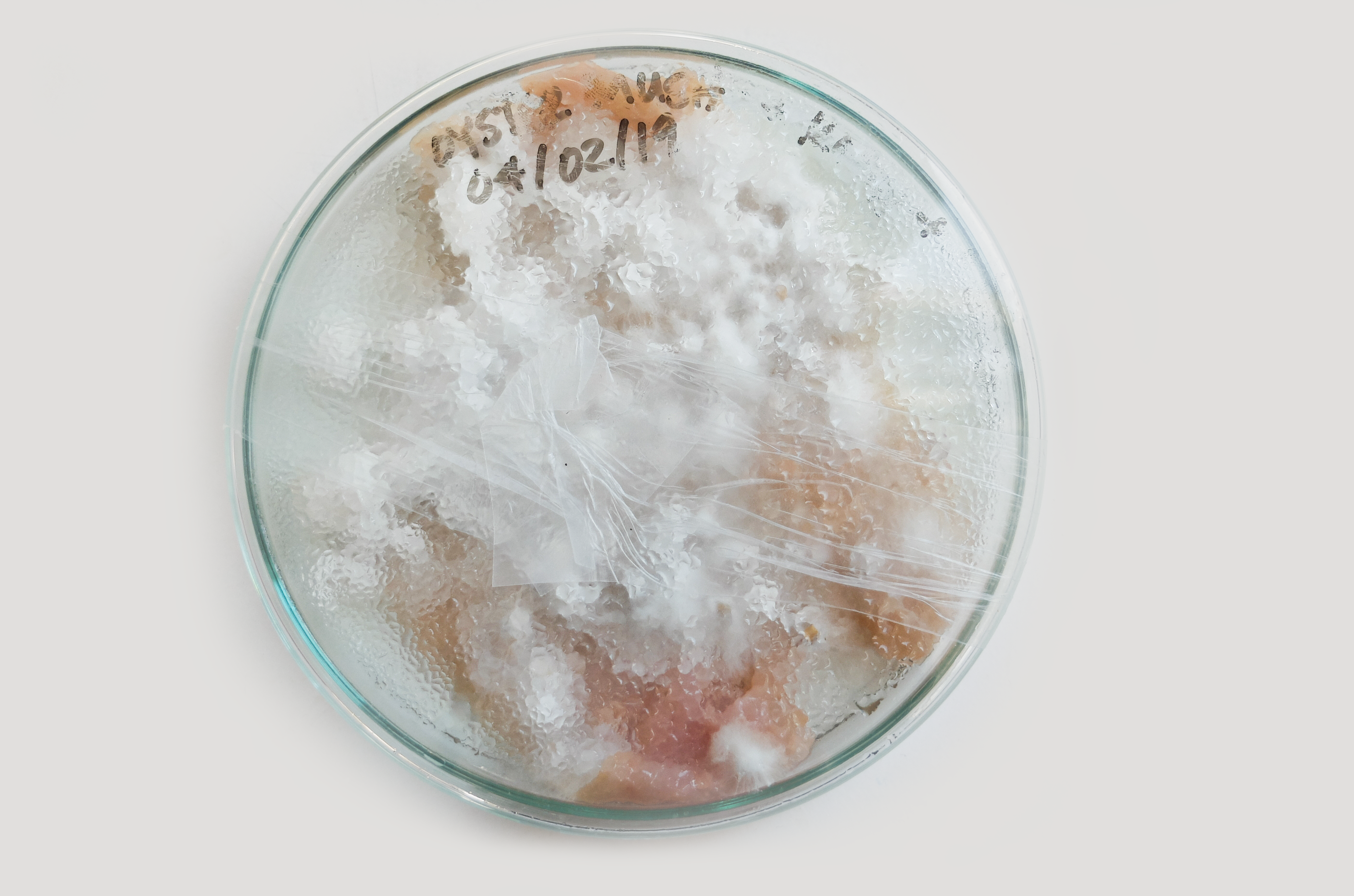
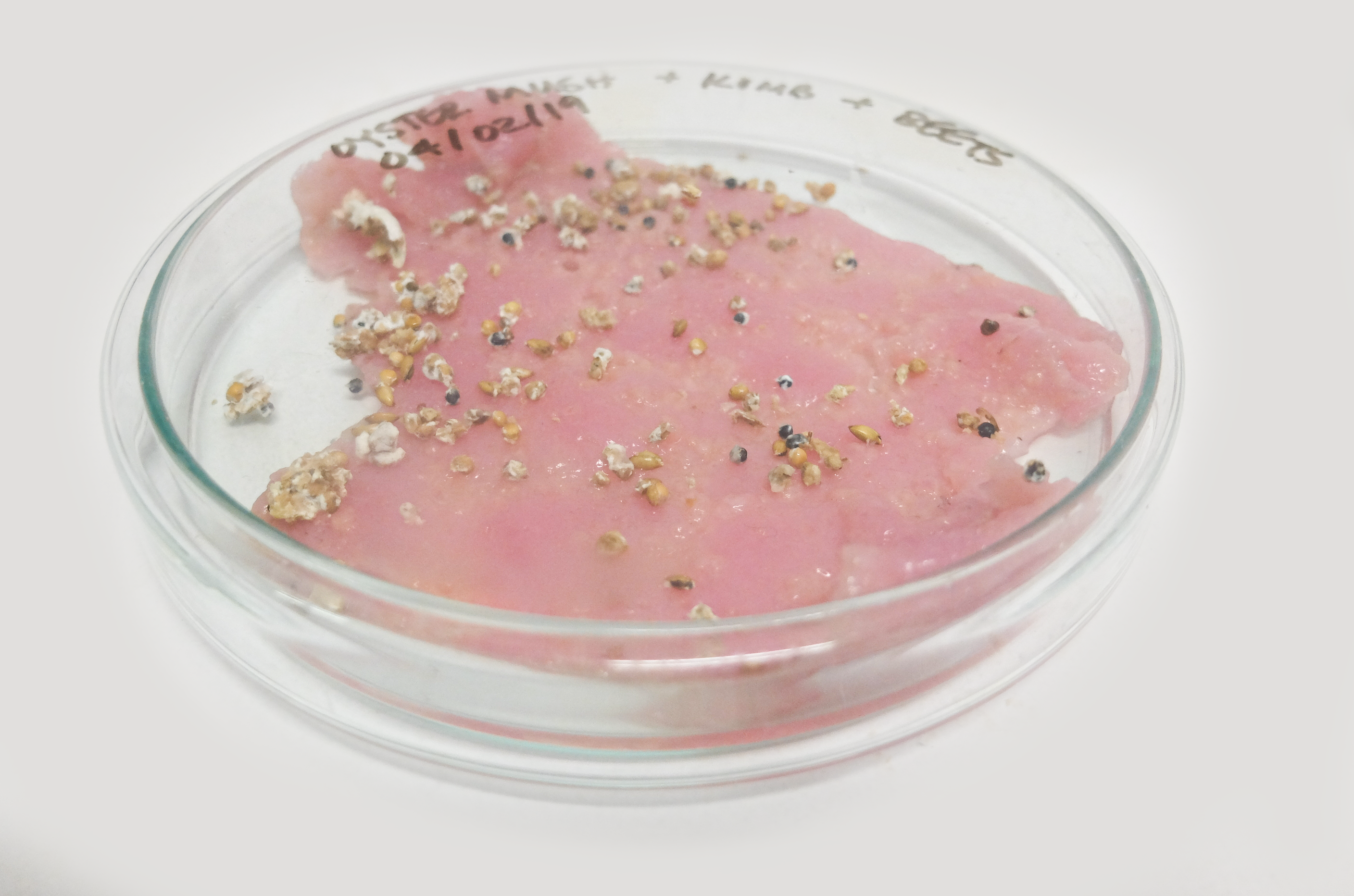
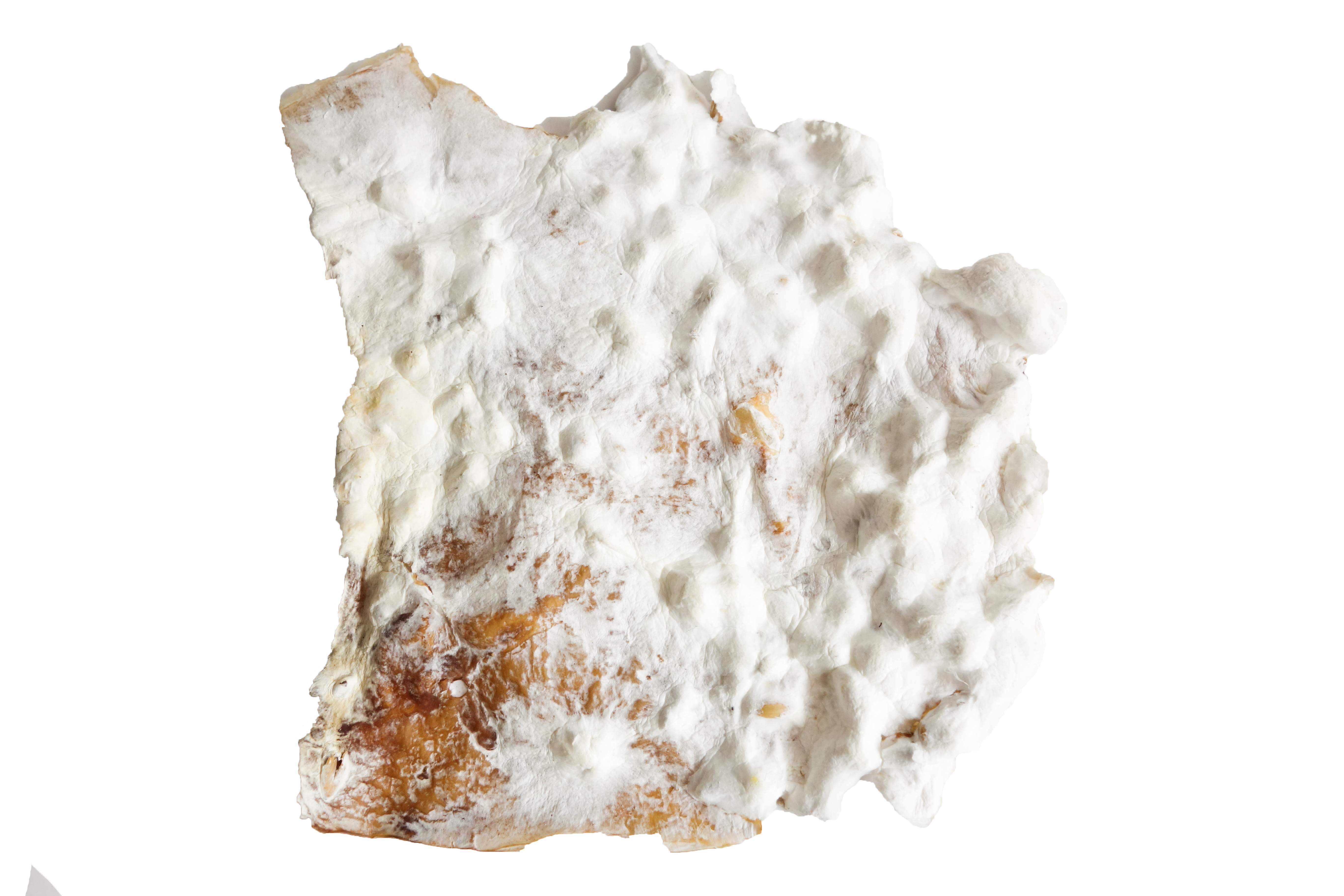
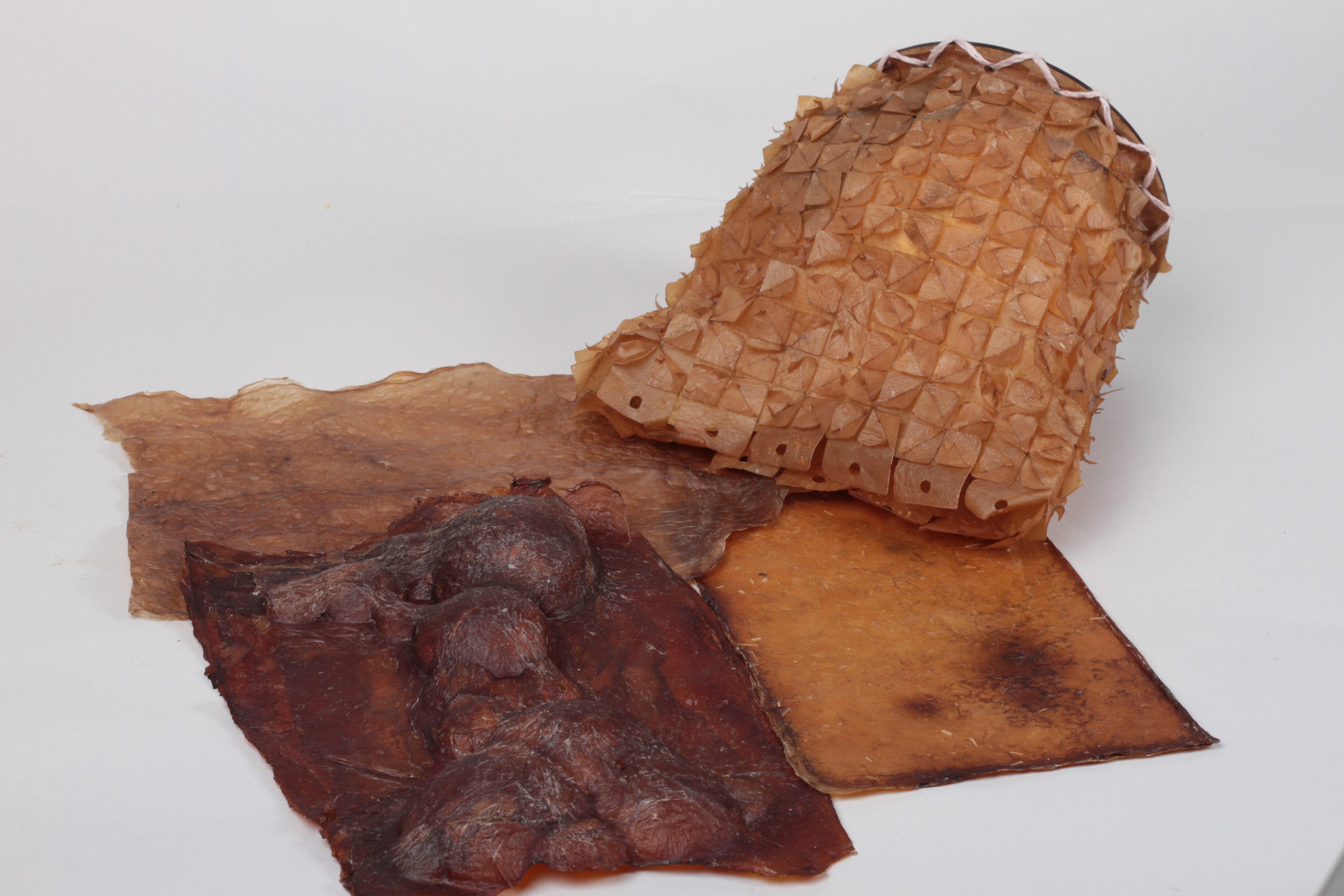
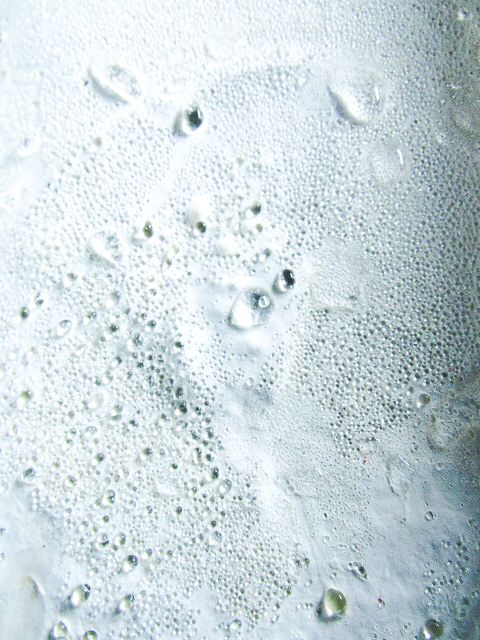 Mycelium-bacterial cellulose composite untreated surface hydrophobicity
Mycelium-bacterial cellulose composite untreated surface hydrophobicityInstructional video @Fungi Academy
Mechanical characteristics of bacterial cellulose-reinforced mycelium composite materials
Multi-Organism Composites: Combined Growth Potential of Mycelium and Bacterial Cellulose
Advanced Materials From Fungal Mycelium: Fabrication and Tuning of Physical Properties
Project Backers
- 11Backers
- 100%Funded
- $3,560Total Donations
- $323.64Average Donation
